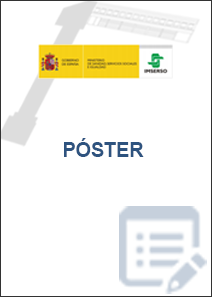 Volver al principio de la página
Volver al principio de la página
Consistencia y validez del test “profile of mood state”, para evaluar los efectos de la danza creativa terapéutica en personas con demencia. = Consistency and validity of the “profile of mood state” test to evaluate the effects of creative therapeutic dance in persons with dementia
Información documento
Tipo:
Catalogación:
- Publicaciones
- Publicaciones, Pósteres congresos
Autor:
de Andrés Terán, A.L., Pérez Sáez, E. y Cernuda Lago, A.
Idioma:
Fecha de Publicación:
Editorial:
CRE Alzheimer
Documentos:
Descriptores:
- Demencias
- Terapias no farmacológicas
- Danzaterapia
Resumen:
La Danza Creativa Terapéutica (DCT) para Alzhéimer y otras demencias es una terapia no farmacológica (TNF) cuya finalidad terapéutica es mejorar la calidad de vida del paciente desde el axioma de la unidad indisoluble de cuerpo y mente.
Son escasas las investigaciones sobre la DCT en personas con demencia (PcD) aunque existe cierta evidencia de que puede ser eficaz para mejorar el estado de ánimo y la calidad de vida (Guzmán-García, Hughes, James, & Rochester, 2013).
Al ser una terapia creativa hay una dificultad enorme para cuantificar sus efectos en PcD por lo que existe una necesidad de desarrollar o adaptar instrumentos que lo permitan. El "Profile of Mood States" (POMS) es un excelente termómetro emocional y actualmente es uno de los cuestionarios más utilizados en psicología para la medición de los sentimientos, pero no hay constancia de su uso en PcD. Por lo tanto, en este trabajo los objetivos generales son demostrar que el POMS, es una herramienta eficaz y fiable en PcD y analizar las posibles diferencias en las puntuaciones de los participantes antes y después de las sesiones de DCT.
Abstract:
The Creative Therapeutic Dance (CTD) for Alzheimer's and other dementias is a nonpharmacological therapy (NPT) whose therapeutic purpose is to improve the patient's quality of life from the axiom of the indissoluble unity of body and mind.
There is little research on CTD in people with dementia (PwD) although there is some evidence that it may be effective in improving mood and quality of life (Guzmán-García, Hughes, James, & Rochester, 2013).
Because it is a creative therapy, there is an enormous difficulty to quantify its effects in PwC, so there is a need to develop or adapt instruments that allow it. The Profile of Mood States (POMS) is an excellent emotional thermometer and is currently one of the most used questionnaires in psychology for the measurement of feelings, but there is no record of its use in PwD. Therefore, in this paper the general objectives are to demonstrate that the POMS is an effective and reliable tool in PwD and to analyse the possible differences before and after the CTD sessions in the participants' scores.
Observaciones:
Póster presentado en el Alzheimer’s Global Summit. Lisboa 2017.




















